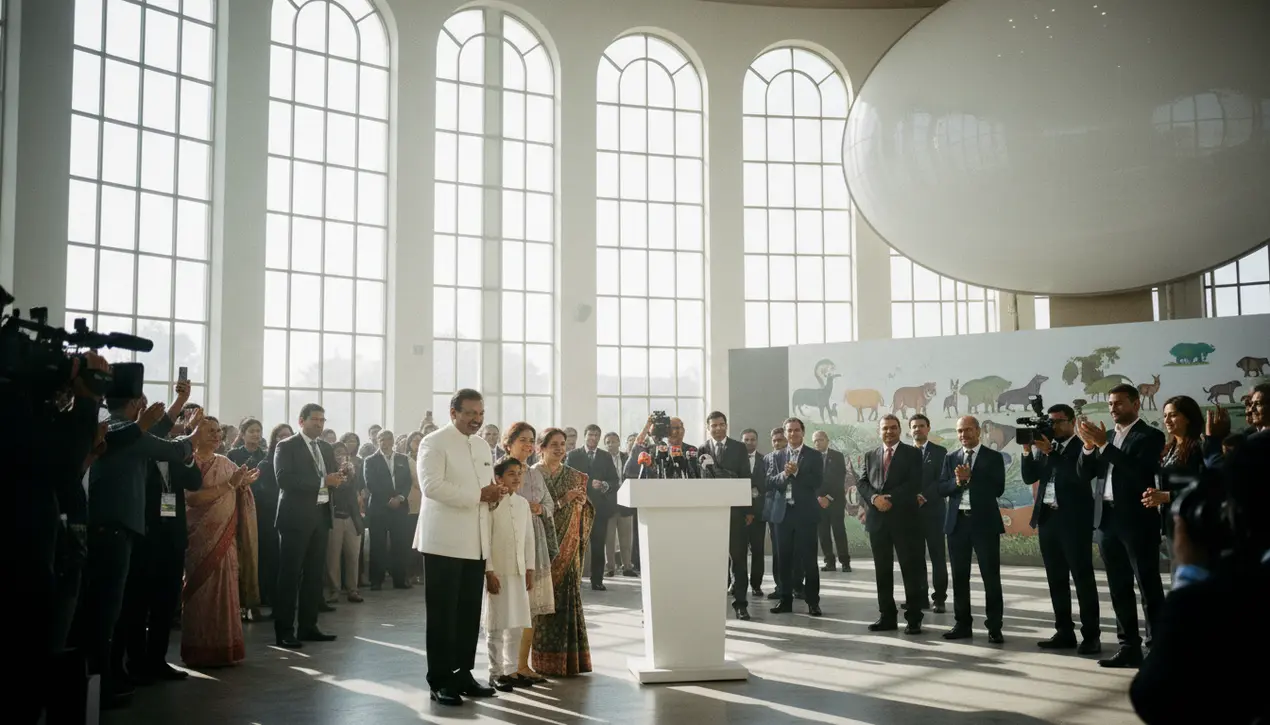
Politicscourts & investigationsCorruption Investigations
UN Clears India in Probe Over Ambani Zoo Animal Imports
AN
Anna Wright
9 hours ago7 min read4 comments
In a decision that reverberated through the halls of international diplomacy and corporate power, a UN wildlife trade body on Sunday decisively cleared India, opting not to impose restrictions on its ability to import endangered animals. This pivotal move came after a groundswell of support from numerous nations successfully overturned an earlier, more stringent recommendation—a recommendation that had cast a long shadow over Vantara, the sprawling 3,500-acre private zoo in Gujarat operated by the philanthropic arm of the Reliance conglomerate, led by Mukesh Ambani and his family.The initial scrutiny, triggered by forceful allegations from a coalition of non-profit and wildlife advocacy groups, had accused the zoo of improper import practices for certain species, plunging the Ambani initiative into a high-stakes ethical and legal maelstrom. This case is far more than a bureaucratic footnote; it represents a critical juncture in the ongoing, global debate about conservation, corporate influence, and the very definition of ethical stewardship in an era of extreme wealth.The allegations, which questioned the provenance and justification for acquiring these vulnerable creatures, forced a uncomfortable conversation: can private, corporate-funded entities truly serve as sanctuaries, or do they risk becoming glorified menageries for the ultra-rich, where the lines between conservation and commodification blur? The UN's final ruling, therefore, is not merely a technicality but a profound legitimization of a specific model of wildlife management, one that intertwines immense private capital with public conservation goals. It sets a powerful precedent, signaling to other emerging economies and their billionaire philanthropists that such ambitious projects can navigate the complex web of international regulation.However, the victory for Reliance is likely to deepen existing fractures within the global conservation community. On one side, proponents argue that the vast resources of a conglomerate like Reliance can achieve conservation outcomes impossible for cash-strapped government agencies, providing state-of-the-art veterinary care, expansive habitats, and robust anti-poaching security.On the other, critics warn of a dangerous privatization of natural heritage, where the fate of endangered species becomes subject to the whims and reputation of a single family, potentially creating accountability black holes outside the purview of traditional public oversight. The personal impact of Mukesh Ambani, as the patriarch of Asia's wealthiest family, cannot be understated in this narrative; his vision for Vantara becomes a test case for how personal legacy projects intersect with global environmental imperatives.Looking forward, the consequences of this decision will unfold on multiple fronts. It may embolden similar corporate-led conservation efforts across India and beyond, potentially unlocking new funding streams for endangered species.Yet, it also raises the stakes for Vantara's transparency and long-term commitment, placing it under a permanent microscope where any future misstep will be magnified exponentially. The story of the UN's probe is ultimately a human story about power, responsibility, and our evolving relationship with the natural world—a narrative where the corridors of corporate boardrooms and international convention halls collide in determining the future of life on our planet.
#UN wildlife trade
#India
#Vantara zoo
#Ambani
#endangered animals
#investigation cleared
#featured
Stay Informed. Act Smarter.
Get weekly highlights, major headlines, and expert insights — then put your knowledge to work in our live prediction markets.
Comments
Loading comments...
© 2025 Outpoll Service LTD. All rights reserved.